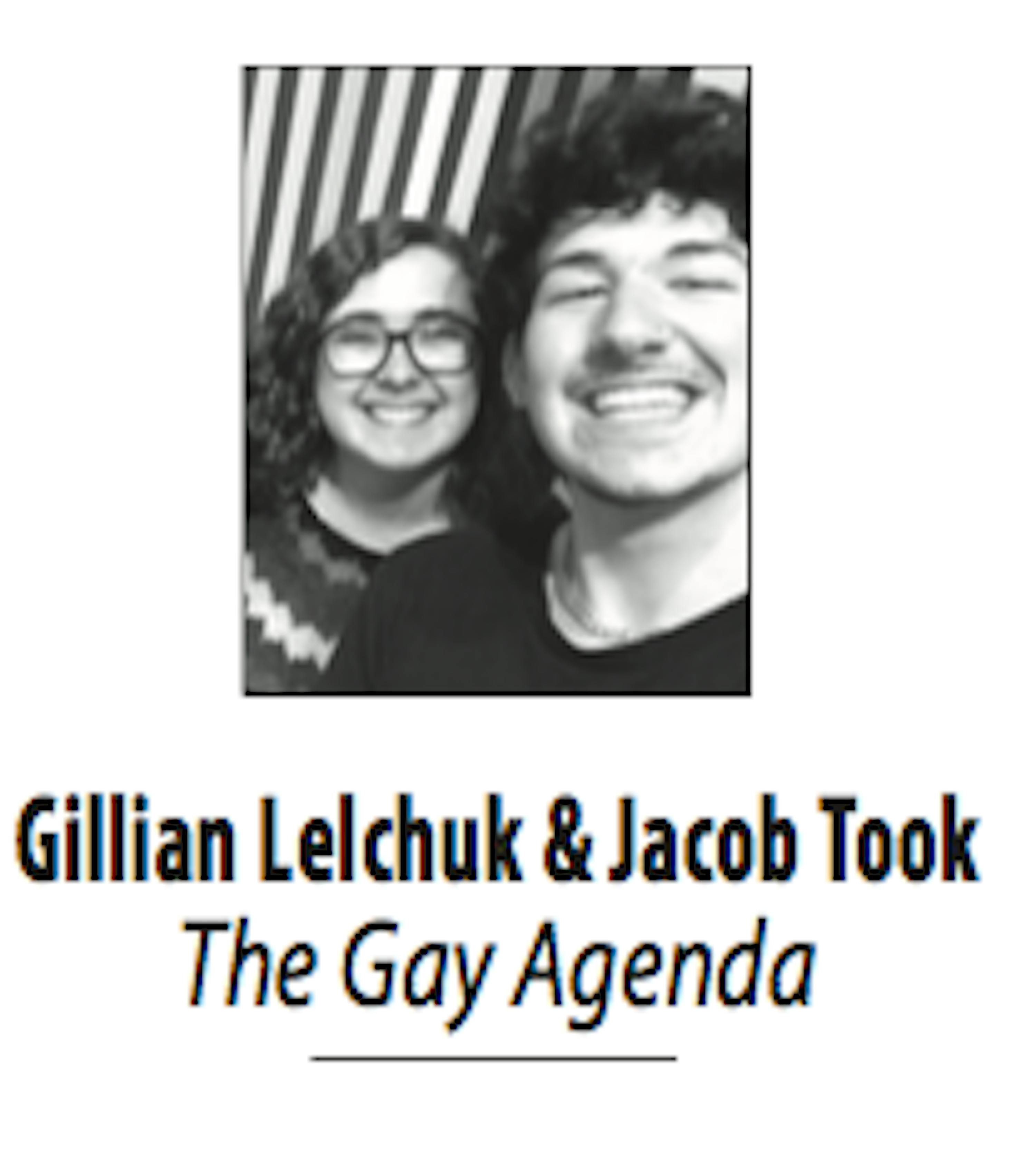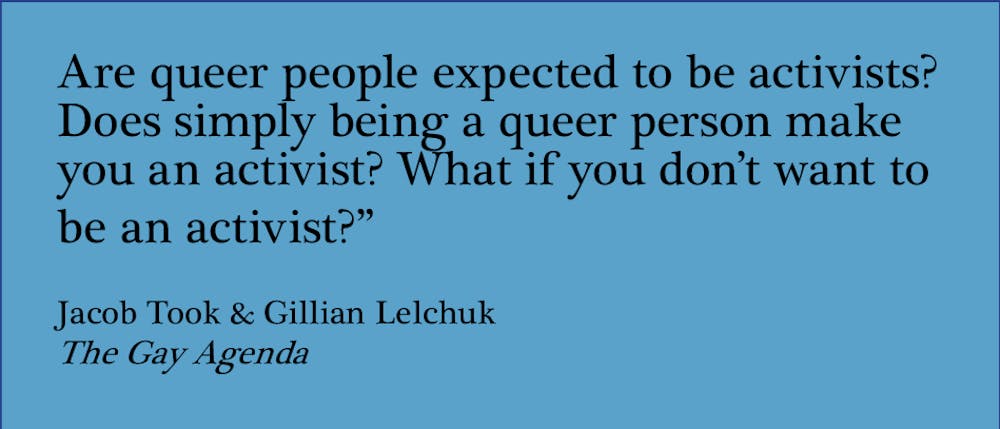Many members of the LGBTQ community grapple with their relationships to activism. Are queer people expected to be activists? Does simply being a queer person make you an activist? What if you don’t want to be an activist? What even is activism?
Activism means different things to different people, but in regards to the queer community, we think it requires a targeted effort to make a difference. It requires highlighting underrepresented voices and working towards equal rights for people of all sexual orientations and gender identities.

As to our other questions, they can be really hard to answer. Even where there are answers, Jacob and I don’t always agree.
As a queer person, I feel like I have an obligation to be an activist, but I’ve struggled with what that means for me. Is this column activism? Is writing a short story with a queer protagonist activism? Is educating my cisgender heterosexual peers about LGBTQ issues activism?
Jacob argues that this column is a form of activism, and maybe he’s right. This semester, we’ve highlighted issues that we’ve experienced as members of the queer community, and we’ve brought them to the attention of a wider audience. But I wonder if that’s enough.
If activism is about elevating underrepresented voices and marginalized communities, then maybe this column does that on its own, but maybe it doesn’t. While I have run into homophobia, as a whole, I don’t feel like my sexuality has pushed me to the margins. For the most part, people have been supportive and accepting. I haven’t had to fight for anything, and maybe that’s why I feel so uncomfortable with whatever small impact I’ve made.
Last year, I watched ABC’s When We Rise, an eight-part miniseries about the fight for marriage equality and the AIDS crisis. The individuals depicted are real-life activists who lobbied Congress, worked at phone banks and organized an entire movement. I cried a lot when I watched that show, because these people worked so hard so my generation wouldn’t need to.
But I think we still want to. I want to make a difference. I want to help my community. Things aren’t perfect, and I don’t think they’re going to get there for a while. According to the Human Rights Campaign, eight transgender individuals have been killed so far this year, with trans women of color targeted the most.
As a cisgender, white woman, I have an enormous amount of privilege both within the queer community and in American society as a whole, but I often struggle with how to use it. How can I promote and elevate underrepresented voices? How do I make sure I’m doing enough? Maybe I’ll never figure it out, but that won’t stop me from trying.
Like Gillian, I have often struggled with how to use my privilege for activism as a white gay man. For me, this column is a form of activism. But on the whole, I am often frustrated by white men in the queer community.
Just living as a queer person does not qualify anyone to be an activist. I constantly get frustrated with queer people, particularly white gay men, who don’t engage with the community. Being out and visible can be important, but there is a responsibility to use that visibility to bring attention to marginalized voices. That is the crux of activism.
And maybe this has changed over time. Back in the old days, a celebrity — even a white man — who had the courage to come out was bringing attention to a community which had been silenced and stigmatized by society.
But we have moved past the point of congratulating out celebrities for their bravery. Sure, it’s important that Adam Rippon and Gus Kenworthy are out Olympic athletes, but simply existing in that space as members of the queer community makes them just that — members of the queer community. But not activists.
White gay men love to pat themselves on the back just for using the label gay. Don’t get me wrong, being gay brings a lot of difficulties, and their experiences don’t deserve to be silenced.
But they also have a responsibility to recognize that other marginalized groups within the LGBTQ community have been silenced for decades. And as representation in the community has changed, so have the demands of activism.
This leads me to question how I can best be an activist for the community as a white gay man. I feel a responsibility to be an activist not because I feel as though I need to earn a place in the community, but because I want to see an end to the marginalization of queer people of color.
That being said, I’m quite aware that I’m usually not the best person to speak for marginalized groups. Sometimes, the best thing I can do is just listen.
That prompts the question: Can I be an activist just by listening? That passivity directly contradicts the goal of activism in name, but given the shifting understandings of marginalization within the queer community, maybe that’s the best way I can be an activist.
It’s not fair to expect every white gay man to be on the front lines of the fight for equity. That’s just not some people’s cup of tea.
But white gay men have a responsibility to be aware of their place in the community. Just existing as white gay men is no longer a form of activism, and we have to stop pretending that it is.
Both of us writing this column want to help our community. We both have privilege, and we want to use it. We both agree that while visibility is important, we need to take it further. We just haven’t quite figured out how yet.





